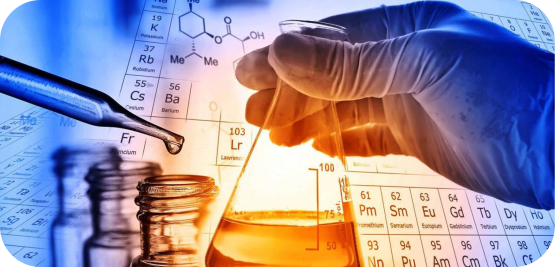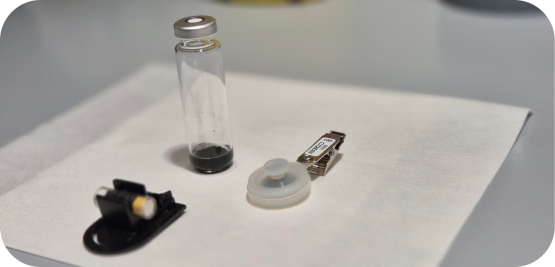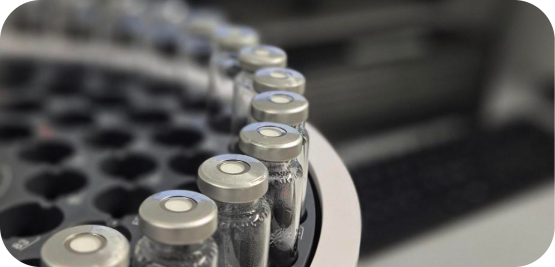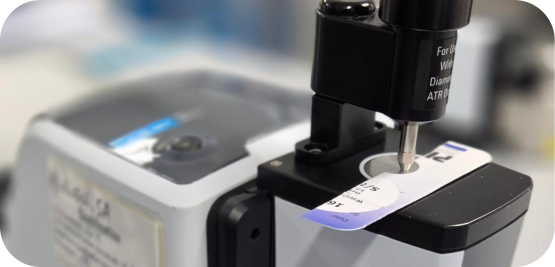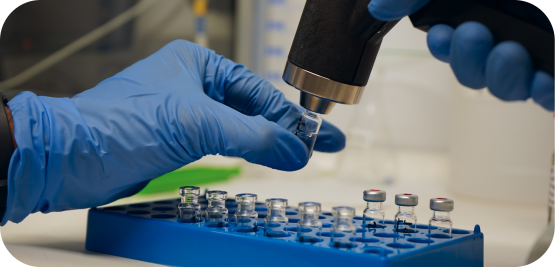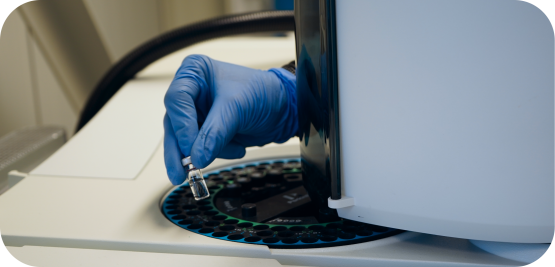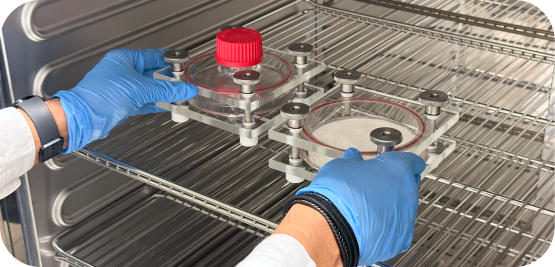Chemical Characterization & Toxicological Risk Assessment Under ISO 10993-18, ISO 10993-12 & ISO 10993-17:2023
Chemical characterization and toxicological risk assessment are central components of the modern biological evaluation of medical devices. Regulators expect manufacturers to demonstrate a clear understanding of the substances present in their device, the potential patient exposure to those substances, and whether such exposures may represent any toxicological concern.
Monitoring EO in Ambient Air: Badge Testing & In-Package Safety Checks
EO remains essential for sterilizing heat- and moisture-sensitive medical devices. But as regulatory expectations tighten, controlling EO in the workplace air and inside packaged product is now a critical part of safety and compliance.
Detecting Residual IPA: Medistri’s New Validated Method
At Medistri, we continuously expand our laboratory services to help manufacturers demonstrate the safety and compliance of their products. Our latest development is a newly validated method for detecting residual Isopropanol (IPA) — a solvent that plays a central role in cleaning and disinfection processes across the healthcare and pharmaceutical industries.
Material Identification through FTIR Spectroscopy: Ensuring Safety and Compliance in Medical Device Development
Material identification is a cornerstone of medical device development and quality control. At Medistri, our FTIR (Fourier Transform Infrared) spectroscopy services provide manufacturers with precise, traceable material characterization to support regulatory compliance and patient safety throughout the product lifecycle.
Validating Cleaning & Disinfection of Reusable Medical Devices
At Medistri, we help healthcare manufacturer ensure that their reusable medical devices are not only safe to use — but also scientifically validated to be cleaned, disinfected, and reprocessed effectively between uses. With the increasing scrutiny from international regulators such as the European Commission and the U.S. FDA, manufacturers must go beyond intuitive instructions and provide robust, validated reprocessing procedures. These procedures must comply with strict standards such as ISO 17664, AAMI ST98, and the ISO 15883 series.
An Overview of Cleaning Validation & Cleanliness Testing for Medical Devices
Medical device manufacturers face increasing demands for fast product release, regulatory compliance, and cost control. At Medistri, we offer one of the most competitive and efficient laboratory services in the Swiss market, enabling you to accelerate time-to-market while maintaining the highest quality standards.
Innovating Laboratory Testing: New Alternatives to Animal Testing for Medical Devices & Pharma
At Medistri, we are committed to advancing healthcare through innovation in laboratory and sterilization services. As regulatory standards evolve and global healthcare companies look for faster, more ethical, and more predictive safety assessments, Medistri supports clients in transitioning from traditional animal testing toward validated in vitro and animal-free methods.
Ensuring Safety in Plastics and Food Contact Materials
At Medistri, we understand the growing concerns surrounding bisphenols - particularly Bisphenol A (BPA) - in plastics, polymers, and food contact materials. Bisphenols are synthetic compounds used extensively in the production of polycarbonates and epoxy resins. Due to their potential endocrine-disrupting effects, regulatory scrutiny has increased across multiple industries.
An Overview of BDDE Analysis by GC-MS
1,4-Butanediol diglycidyl ether (BDDE, CAS No. 2425-79-8) is a chemical compound widely used as a crosslinking agent in the manufacture of hyaluronic acid (HA)-based dermal fillers. Its primary function is to enhance the durability and longevity of these products by binding to HA molecules, increasing their resistance to enzymatic degradation. Given its extensive use in medical and cosmetic applications, ensuring the safety and quality of BDDE-crosslinked products is essential. A key aspect of this assurance lies in the accurate detection and quantification of residual BDDE in HA-based dermal fillers.
Analysis of Food Contact Materials (FCM) at Medistri
Medistri is proud to expand our comprehensive testing capabilities to include specialized food contact material testing - a critical requirement for manufacturers across the food and packaging industries. Drawing on our established expertise in laboratory testing and quality assurance, we've recently developed this new service to address growing market needs.

